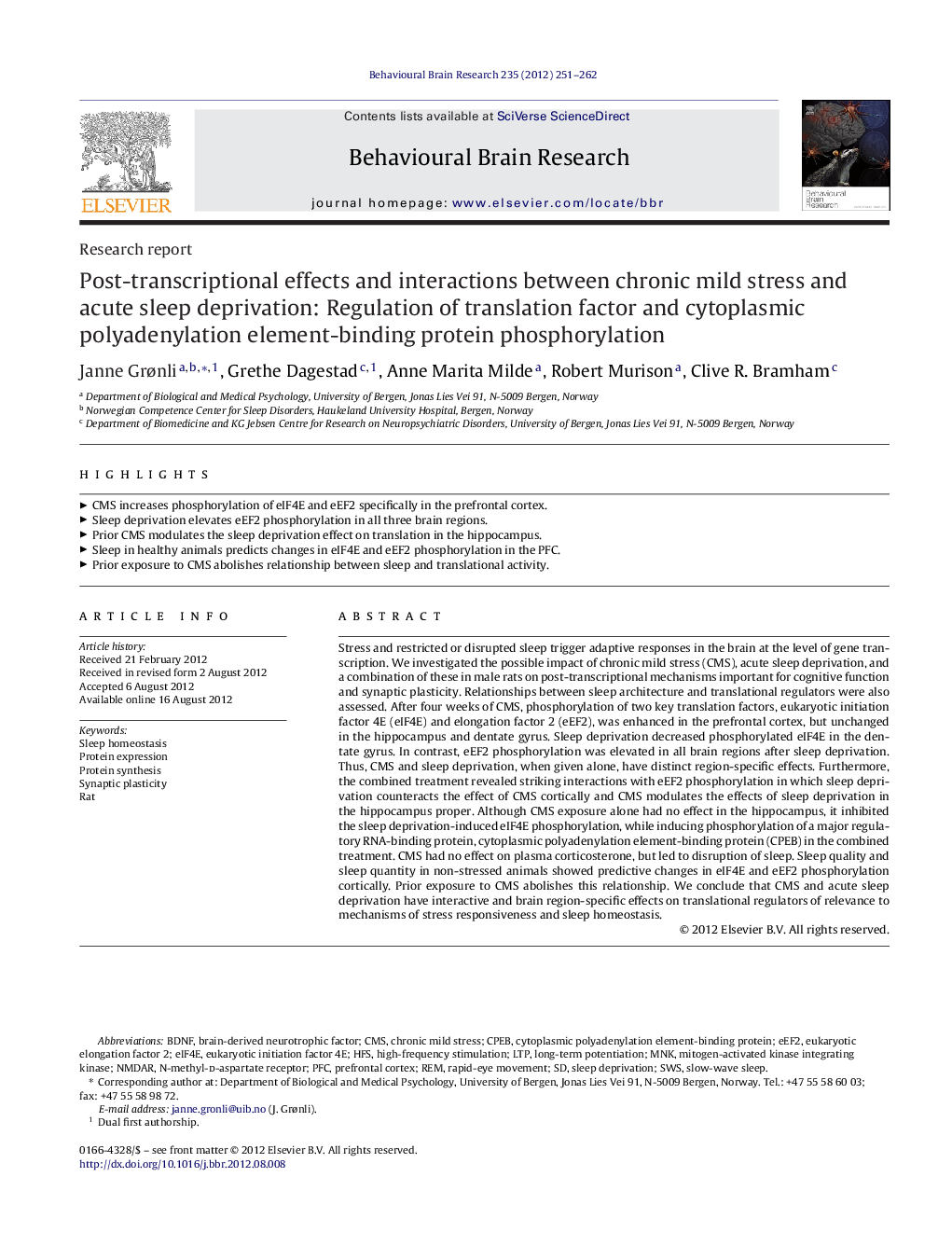| کد مقاله | کد نشریه | سال انتشار | مقاله انگلیسی | نسخه تمام متن |
|---|---|---|---|---|
| 6259271 | 1289976 | 2012 | 12 صفحه PDF | دانلود رایگان |

Stress and restricted or disrupted sleep trigger adaptive responses in the brain at the level of gene transcription. We investigated the possible impact of chronic mild stress (CMS), acute sleep deprivation, and a combination of these in male rats on post-transcriptional mechanisms important for cognitive function and synaptic plasticity. Relationships between sleep architecture and translational regulators were also assessed. After four weeks of CMS, phosphorylation of two key translation factors, eukaryotic initiation factor 4E (eIF4E) and elongation factor 2 (eEF2), was enhanced in the prefrontal cortex, but unchanged in the hippocampus and dentate gyrus. Sleep deprivation decreased phosphorylated eIF4E in the dentate gyrus. In contrast, eEF2 phosphorylation was elevated in all brain regions after sleep deprivation. Thus, CMS and sleep deprivation, when given alone, have distinct region-specific effects. Furthermore, the combined treatment revealed striking interactions with eEF2 phosphorylation in which sleep deprivation counteracts the effect of CMS cortically and CMS modulates the effects of sleep deprivation in the hippocampus proper. Although CMS exposure alone had no effect in the hippocampus, it inhibited the sleep deprivation-induced eIF4E phosphorylation, while inducing phosphorylation of a major regulatory RNA-binding protein, cytoplasmic polyadenylation element-binding protein (CPEB) in the combined treatment. CMS had no effect on plasma corticosterone, but led to disruption of sleep. Sleep quality and sleep quantity in non-stressed animals showed predictive changes in eIF4E and eEF2 phosphorylation cortically. Prior exposure to CMS abolishes this relationship. We conclude that CMS and acute sleep deprivation have interactive and brain region-specific effects on translational regulators of relevance to mechanisms of stress responsiveness and sleep homeostasis.
⺠CMS increases phosphorylation of eIF4E and eEF2 specifically in the prefrontal cortex. ⺠Sleep deprivation elevates eEF2 phosphorylation in all three brain regions. ⺠Prior CMS modulates the sleep deprivation effect on translation in the hippocampus. ⺠Sleep in healthy animals predicts changes in eIF4E and eEF2 phosphorylation in the PFC. ⺠Prior exposure to CMS abolishes relationship between sleep and translational activity.
Journal: Behavioural Brain Research - Volume 235, Issue 2, 1 December 2012, Pages 251-262